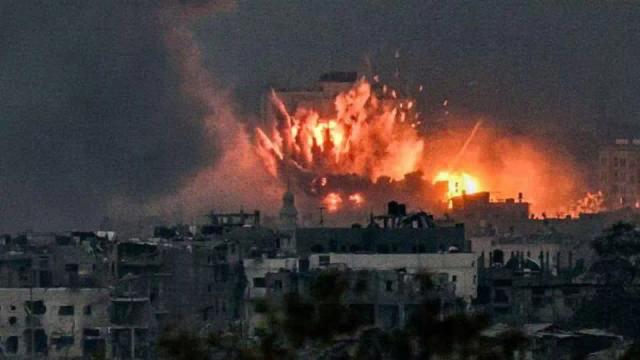UK's Former Minister Claims Israel Feels Unfairly Attacked At UN Compared To Zimbabwe

Rory Stewart, the former UK Minister of State for Development and Africa, has stated that Israel feels marginalized and unfairly attacked at the United Nations (UN), while other countries like China, Zimbabwe, and Cuba have not faced the same level of criticism.
In June 2018, the UN General Assembly passed a resolution blaming Israel for casualties during clashes with Palestinian protesters at the Gaza border. More recently, the UN Security Council attempted to pass a resolution condemning Hamas’ attack on Israel and calling for a humanitarian pause in the conflict, but the US vetoed it. The US has often used its Security Council veto to protect Israel from critical resolutions.
Commenting on the Israeli-Hamas war and the stance taken by the United Nations, Rory Stewart argues that Israel feels that they are being unfairly treated at the United Nations. He said:
Israeli’s point of view, there are many Israeli points of view, but they would start by saying, listen understand these are very serious enemies out there. That Hamas back in the 1990s had a founding charter dedicated to the complete elimination of the state of Israel. That states like Iran were committed to the elimination of the state of Israel, the 67 war, and the Young People War, were designed basically to wipe them out. They feel that they have been marginalised and attacked unfairly at United Nations forums for decades while other countries like China, and Zimbabwe and Cuba haven’t been attacked the same way. They feel it’s an existential threat. They would emphasise that the Israeli army warns civilians before it attacks buildings.
The 1967 war
In 1948, Israel’s Arab neighbours unsuccessfully invaded the newly established state. During the conflict, young Egyptian and Israeli officers, including Yitzhak Rabin and Gamal Abdel Nasser, attempted to resolve a standoff known as the Falluja pocket.
HOT DEALS:
itel A70 - (128GB, 3GB RAM) $89,
itel A70 - (256GB, 4GB RAM) $99
itel P40 (128GB, 4GB), (6000mAh) $99
itel P40 (64GB, 4G), (6000mAh) $93
Cash on Delivery in Harare & Bulawayo. Tinotumira kwamuri inosvika.
WhatsApp: 0783 450 793
The establishment of Israel led to the displacement of Palestinians, who view it as a catastrophe.
In 1967, the Six-Day War occurred, where Israel launched preemptive strikes and gained control of territories from Egypt, Jordan, and Syria. This war had significant geopolitical implications, fueling national pride in Israel but exacerbating the Arab-Israeli conflict.
Arab leaders refused peace, recognition, and negotiation with Israel. Subsequently, the Yom Kippur War took place in 1973. Israel’s occupation and settlements in the seized territories have hindered progress in Arab-Israeli peace talks. While Israel returned some territories, the status of others, like the Golan Heights and the West Bank, remains unresolved.
Some Zimbabweans feel that they are unjustly compared to Israel by Rory Stewart. They argue that Zimbabwe has not engaged in actions like bombing neighbouring countries. Some pointed out that Zimbabwe should not be compared to Israel because it doesn’t pose a threat to global peace. They stated that seeking revenge and committing atrocities would make Israel look bad, similar to the actions of the Nazis during World War I.
Some people believe that Zimbabwe should only be mentioned in discussions about unfair elections, like the recent situation in Poland. They argue that unfair elections are a common occurrence in Zimbabwe, unlike war. Zimbabwe has conducted several disputed elections, with allegations that the ruling party, ZANU PF, colludes with the Zimbabwe Electoral Commission (ZEC) to manipulate the outcomes.
China, Cuba, and Zimbabwe have faced criticism over the years for different reasons. China has been criticised for its human rights record, censorship, and territorial disputes. Cuba has restrictions on political freedoms, limited freedom of speech and assembly, and a lack of multiparty elections. Zimbabwe has been scrutinised for political repression, human rights abuses, and allegations of electoral fraud.





